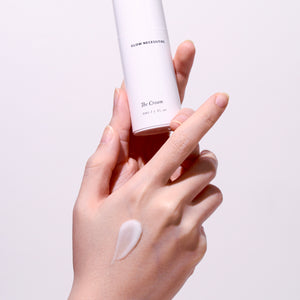In recent years, there has been a surge in the popularity of ingestible ingredients for skin health, with countless products and strategies claiming to enhance its vitality. This trend is fueled by a plethora of myths and misconceptions surrounding the efficacy of certain substances when consumed orally. Getting a better understanding between the myths and facts can really help you make or break your skin's long-term well-being.
Myth 1: Collagen Supplements Improve Skin Elasticity:
One prevalent myth is that oral collagen supplements can significantly improve skin elasticity and reduce wrinkles. While collagen is indeed a crucial protein for skin structure, the ability of ingested collagen to directly impact skin health remains debatable. Studies however, suggest limited evidence supporting the efficacy of oral collagen supplements in enhancing skin appearance. Factors like the molecular size of ingested collagen and its digestion and absorption in the gastrointestinal tract contribute to the uncertainty surrounding its effectiveness.
Fact 1: Antioxidants from Diet Contribute to Skin Protection:
Contrary to the dubious claims surrounding collagen supplements, there is substantial evidence supporting the positive role of antioxidants obtained through diet in promoting skin health. Antioxidants like CoQ10, vitamins C and E, in protecting the skin from oxidative stress. A diet rich in fruits, vegetables, and nuts provides essential antioxidants that help combat free radicals and contribute to overall skin well-being.
Myth 2: Hyaluronic Acid Supplements Hydrate the Skin:
Hyaluronic acid is renowned for its hydrating properties when applied topically, leading to the belief that oral supplements can similarly enhance skin hydration. However, limited research supports this notion. While topical application of hyaluronic acid is one of the most efficacious skin's natural moisturizing factors, its oral supplementation might not have the same hydrating impact on the skin due to potential degradation during digestion.
Fact 2: Omega-3 Fatty Acids from Fish Oil Support Skin Health:
A substantial body of evidence supports the positive impact of omega-3 fatty acids on skin health. Omega-3s, found abundantly in fish oil, exhibit anti-inflammatory and moisturizing properties that benefit the skin. Studies have demonstrated the potential of omega-3 supplementation in improving skin barrier function and reducing inflammation.
All in all, while some substances fail to live up to the hype surrounding their oral consumption, others, such as antioxidants and omega-3 fatty acids, have a scientifically supported role in promoting skin well-being. It is crucial for consumers to critically evaluate claims and rely on evidence-based information to make informed decisions about incorporating ingestible ingredients into their skincare routines.
REFERENCES
- Arjmandi BH, et al. (2019). Collagen Supplementation as a Complementary Therapy for the Prevention and Treatment of Osteoporosis and Osteoarthritis: A Systematic Review. Journal of Drugs in Dermatology, 18(1), 9-16.
- Cosgrove MC, et al. (2007). Dietary nutrient intakes and skin-aging appearance among middle-aged American women. American Journal of Clinical Nutrition, 86(4), 1225-1231.
- Papakonstantinou E, et al. (2012). Hyaluronic acid: A key molecule in skin aging. Dermato-Endocrinology, 4(3), 253-258.
- Lands B, et al. (2018). Dietary omega-3 fatty acids: Effects in cardiovascular and metabolic diseases. Current Pharmaceutical Design, 24(7), 924-934.









